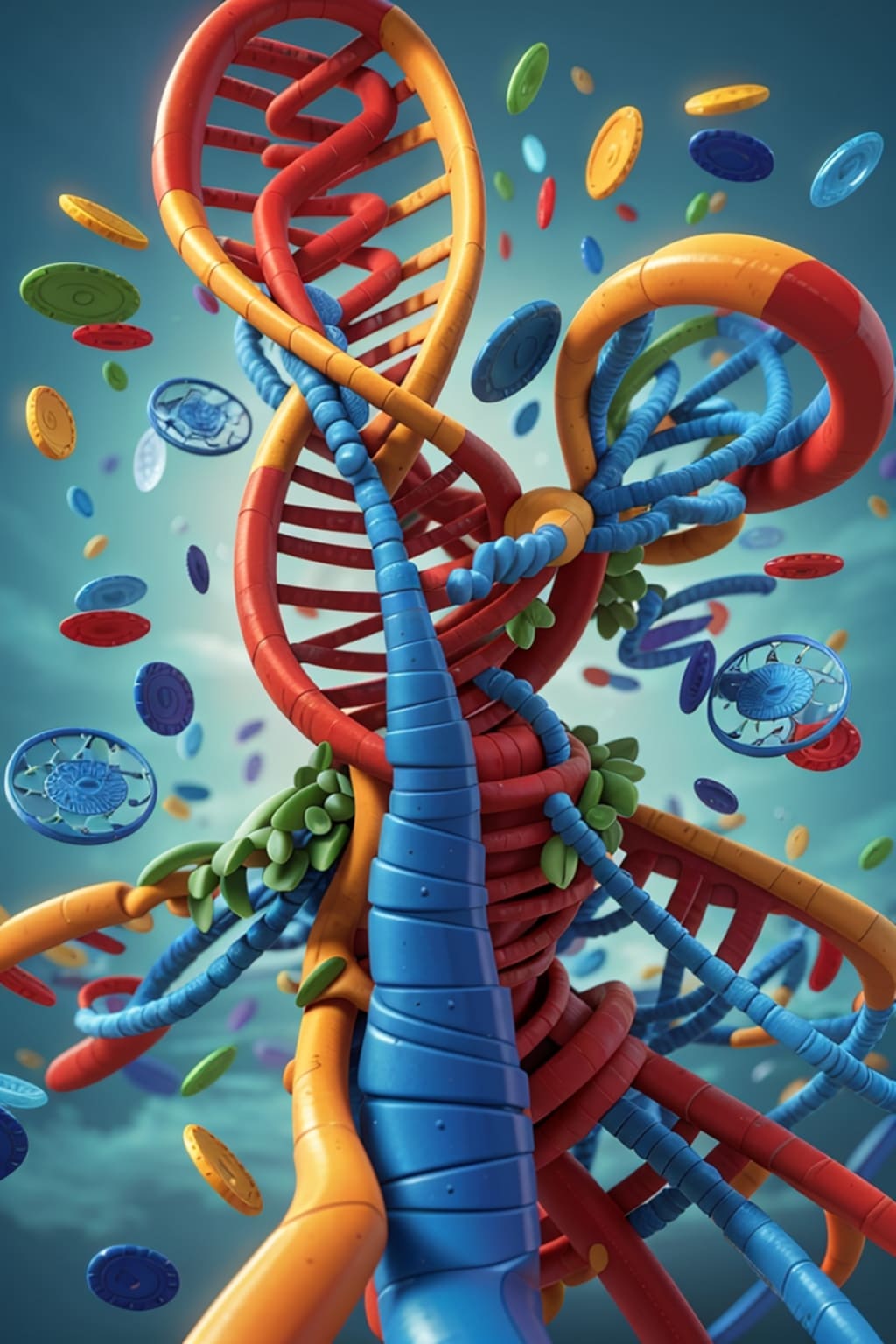How DeepMind's AI Can Crack The Code of Rare Genetic Disease
How Does Artificial Intelligence Help in Understanding Genetic Disease

Genetic diseases are disorders that are caused by changes in the DNA of an organism. Some of these diseases are very common, such as cystic fibrosis, sickle cell anemia, and hemophilia. Others are very rare, affecting only a few individuals in the world, such as Hutchinson-Gilford progeria syndrome, which causes premature aging, or Harlequin ichthyosis, which causes severe skin abnormalities.
Finding the causes and treatments for rare genetic diseases is a daunting challenge for researchers and doctors. There are thousands of known rare diseases, and many more that are still undiscovered. Each disease may have a different genetic origin, and some may involve multiple genes. Moreover, not all genetic changes have the same effect on the organism. Some may cause severe symptoms, while others may have no noticeable impact at all.
To understand how genetic changes affect the organism, researchers need to study the proteins that are encoded by the genes. Proteins are the building blocks of life, performing various functions in the cells and tissues of the body. However, not all proteins are created equal. Some proteins are more important than others, and some are more sensitive to mutations than others.
One type of mutation that can alter the function of a protein is called a missense mutation. This is when a single letter in the DNA sequence is changed, resulting in a different amino acid being added to the protein chain. For example, if the DNA sequence is AGT, which codes for the amino acid serine, and it is changed to AGC, which codes for the amino acid cysteine, this is a missense mutation.
Some missense mutations are harmless, while others can have devastating consequences. For example, a missense mutation in the gene that codes for hemoglobin, the protein that carries oxygen in the blood, can cause sickle cell anemia, a condition that affects millions of people worldwide. On the other hand, a missense mutation in the gene that codes for collagen, the protein that provides structure and strength to the skin and bones, can cause Ehlers-Danlos syndrome, a rare disorder that affects only a few thousand people worldwide.
How can researchers tell which missense mutations are harmful and which are benign? This is where artificial intelligence (AI) comes in. AI is a branch of computer science that aims to create machines and systems that can perform tasks that normally require human intelligence, such as learning, reasoning, and problem-solving. AI has been making remarkable advances in various fields, such as medicine, education, and entertainment.
One of the leading companies in AI research is DeepMind, a subsidiary of Google. DeepMind is best known for creating AlphaGo, an AI system that defeated the world champion of Go, a complex board game that requires intuition and creativity. DeepMind has also created AlphaFold, an AI system that can predict the three-dimensional structure of proteins from their amino acid sequences. This is a breakthrough achievement that could revolutionize drug discovery and biotechnology.
Now, DeepMind has developed a new AI system called AlphaMissense, which can predict the impact of missense mutations on proteins. AlphaMissense works like a language model that has been trained on millions of protein sequences from various organisms. It can analyze any given protein sequence and identify which amino acids are essential for its function and stability. It can also assess how likely a missense mutation is to cause disease by comparing it with known disease-causing mutations from databases such as ClinVar and HGMD.
AlphaMissense has been tested on several datasets of missense mutations from different sources, such as human patients, animal models, and synthetic experiments. The results show that AlphaMissense can accurately predict the effects of missense mutations with up to 90% accuracy. This is significantly better than existing methods that rely on simple rules or statistical models. AlphaMissense can also explain its predictions by highlighting which parts of the protein are affected by the mutation and how they interact with other parts of the protein or other molecules in the cell.
AlphaMissense has many potential applications for biomedical research and clinical practice. It can help researchers discover new genes and pathways involved in rare genetic diseases by screening large numbers of candidate mutations. It can also help doctors diagnose patients with rare genetic diseases by providing them with reliable information about their mutations and their implications for their health and treatment options. Moreover, AlphaMissense can help drug developers design new therapies for rare genetic diseases by identifying targets and mechanisms for intervention.
DeepMind’s AI is not only cracking the code of rare genetic diseases but also opening new horizons for understanding life at its most fundamental level. By combining AI with genomics and proteomics, DeepMind is creating a powerful tool for exploring the complexity and diversity of life on Earth and beyond.
Source:
- https://www.wired.com/story/deepmind-ai-alphamissense-genetics-rare-diseases/
- https://news.yahoo.com/google-deepmind-claims-ai-pinpoint-204348278.html
- https://www.bbc.com/news/science-environment-66847977






Comments (1)
Fantastic and well researched!